Diluting Whisky - The right water
Water is an important addition to Whisky
Nothing in life works without water. We can survive for 10 weeks without food because the body has built up food reserves. But after just a few days without water, our life comes to an end. Our body consists largely of water, of which we constantly lose large quantities through breathing and sweating. The average person consumes between 1.5 and 2.5 litres per day, which must be replenished as quickly as possible. If we exert ourselves or do sport, this requirement can easily double. Westerners cover part of this water requirement with mineral water in addition to tap water. On average, every German drinks just under 100 litres of mineral water per year.
Water is the all-rounder in our body that regulates all vital functions. Water is the solvent for the transport of nutrients and waste products. Water also regulates body temperature. The evaporative cooling effect of sweat on the skin cools the overheated body.
Video by Horst Lüning on the subject of diluting whisky with the right water from 2013
The mineral content of the water
Mineral water is one of the most natural foods. The flavour of mineral water ranges from completely neutral to strongly acidic or salty. Where does this flavour come from? It is the dissolved minerals and other inorganic substances that the water brings with it on its way to the earth's surface.
The most common minerals are sodium, calcium, magnesium, chloride, sulphate and hydrogen carbonate.
Mineral water is divided into 'poor' and 'rich' varieties according to its mineral content, depending on how much mineral content the water carries. The maximum values of 'rich' mineral waters are more than 40 grams of minerals per litre (g/l). The 'poorest' varieties include water from Hawaii with only 5 mg/litre.
Mineral waters with less than 1 g/l include the well-known 'French' Volvic, Evian, Perrier and Vittel.
When do we dilute with water?
Whisky is usually filled into casks for storage at 63.5 vol. alcohol. During the many years of storage, the whisky loses alcohol strength as the alcohol escapes through the cask wall. At the same time, the whisky absorbs ingredients from the wood, which give it some of its flavour. The whisky loses between half a percentage point and one percentage point of alcohol strength per year in the cask. When it is bottled, it still has around 50 to 60 per cent alcohol.
In order to optimally enjoy the aromas and flavours when drinking whisky, we recommend diluting it to less than 50 % alcohol by volume.
Start diluting your whisky drop by drop and work your way up to the optimum flavour!
Which water do we use?
Which water should we use to dilute the whisky at home?
We recommend deionised or distilled water. Both have a neutral taste and there is no mineral flavour in the foreground. The whisky's own flavour is therefore retained. Scotch whiskies, which come out of the cask with 50 to 60 % vol. alcohol from the cask are reduced by law to the required bottle strength using just such water.
Scots only use fresh, locally sourced spring water to dilute their beloved whisky. If you order a whisky in a Scottish pub, you will also receive a jug of spring water straight from the tap. The majority of Scotland is made up of granite rocks and sandstone. Rainwater that flows over or through these layers of rock contains very few minerals.
The large number of mineral waters commercially available in our country have a much higher mineral content than in Scotland. Therefore, pay attention to the information on the mineral water bottle and only use still mineral water. Sparkling water distorts the flavour.
The greatest influence on the flavour of a mineral water is the salt content in the water! Therefore, choose water with a low salt content (hydrogen carbonate).
Original Scottish or the well-known French still and low-mineral water and naturally distilled or deionised water are best suited. We recommend Evian, Volvic, Vittel or Highland Spring water.
Conclusion
In general: experiment!
And here's another warning: never drink large quantities of pure, distilled water. The lack of ions can seriously disrupt your body's mineral balance and even have a life-threatening effect.
Therefore, always add an appropriate amount of single malt whisky to your distilled water;-)





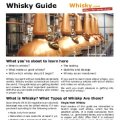


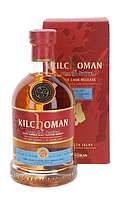
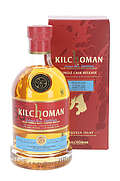
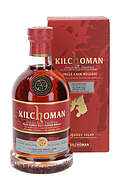
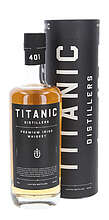
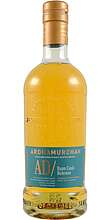



To comment, you must be logged in